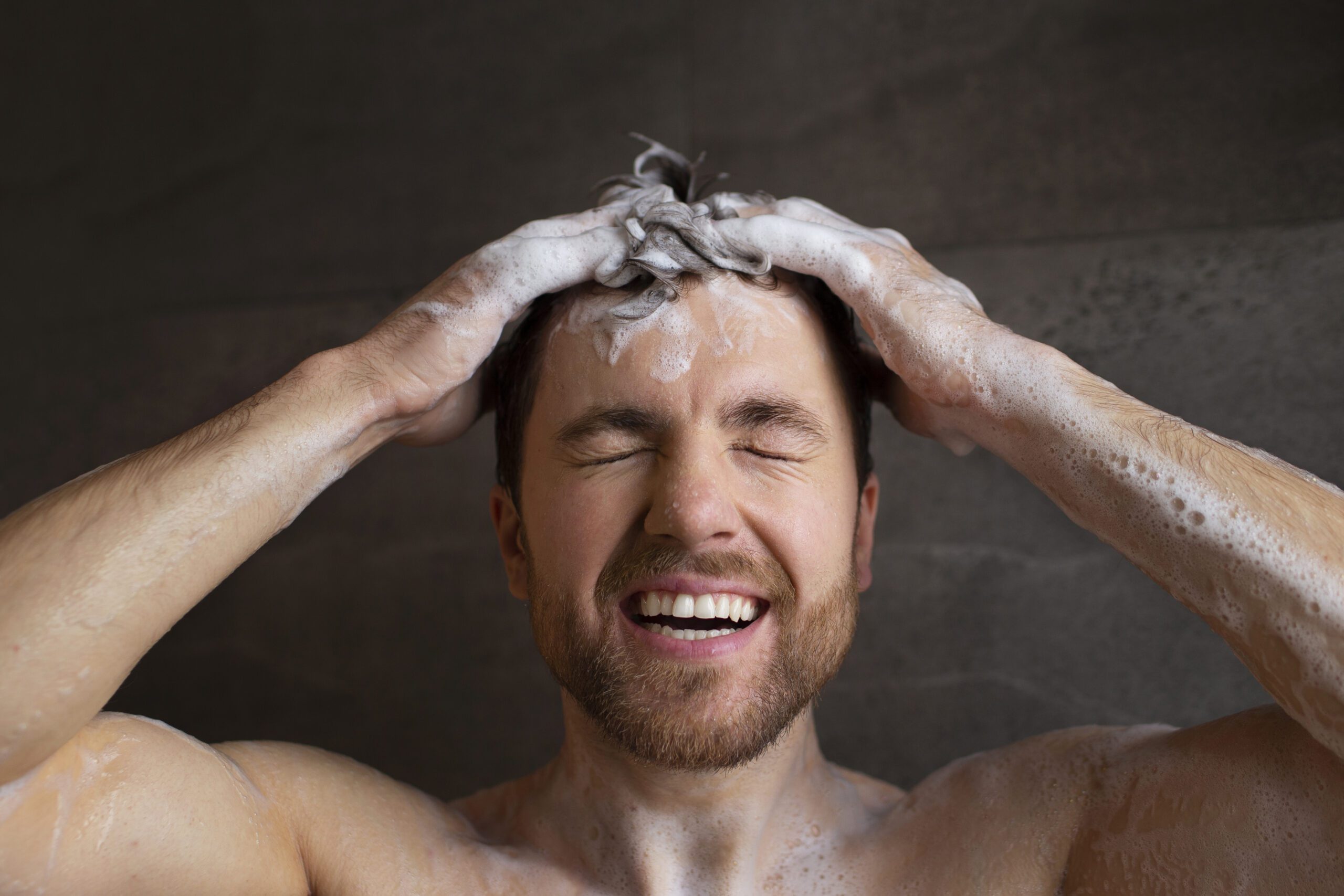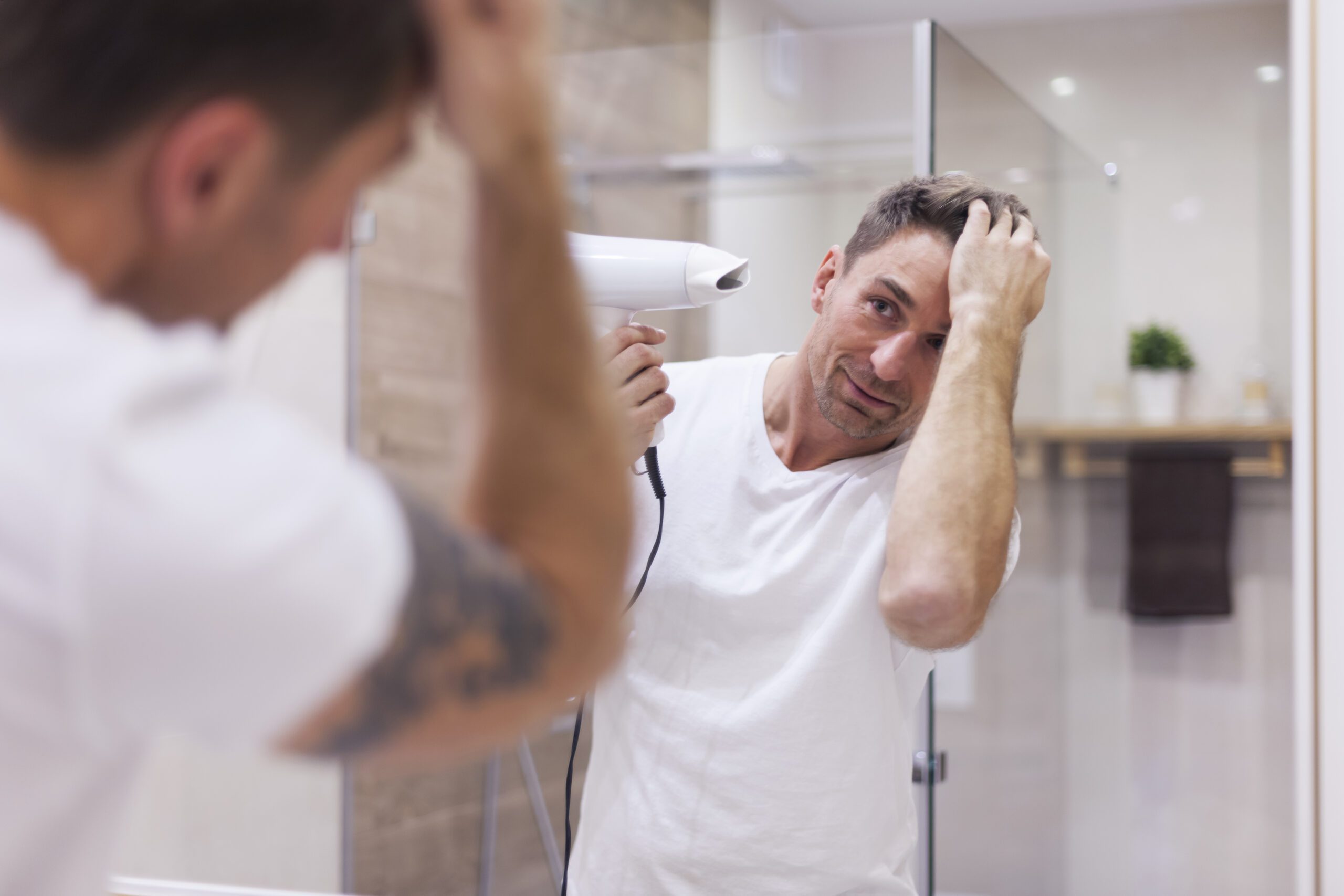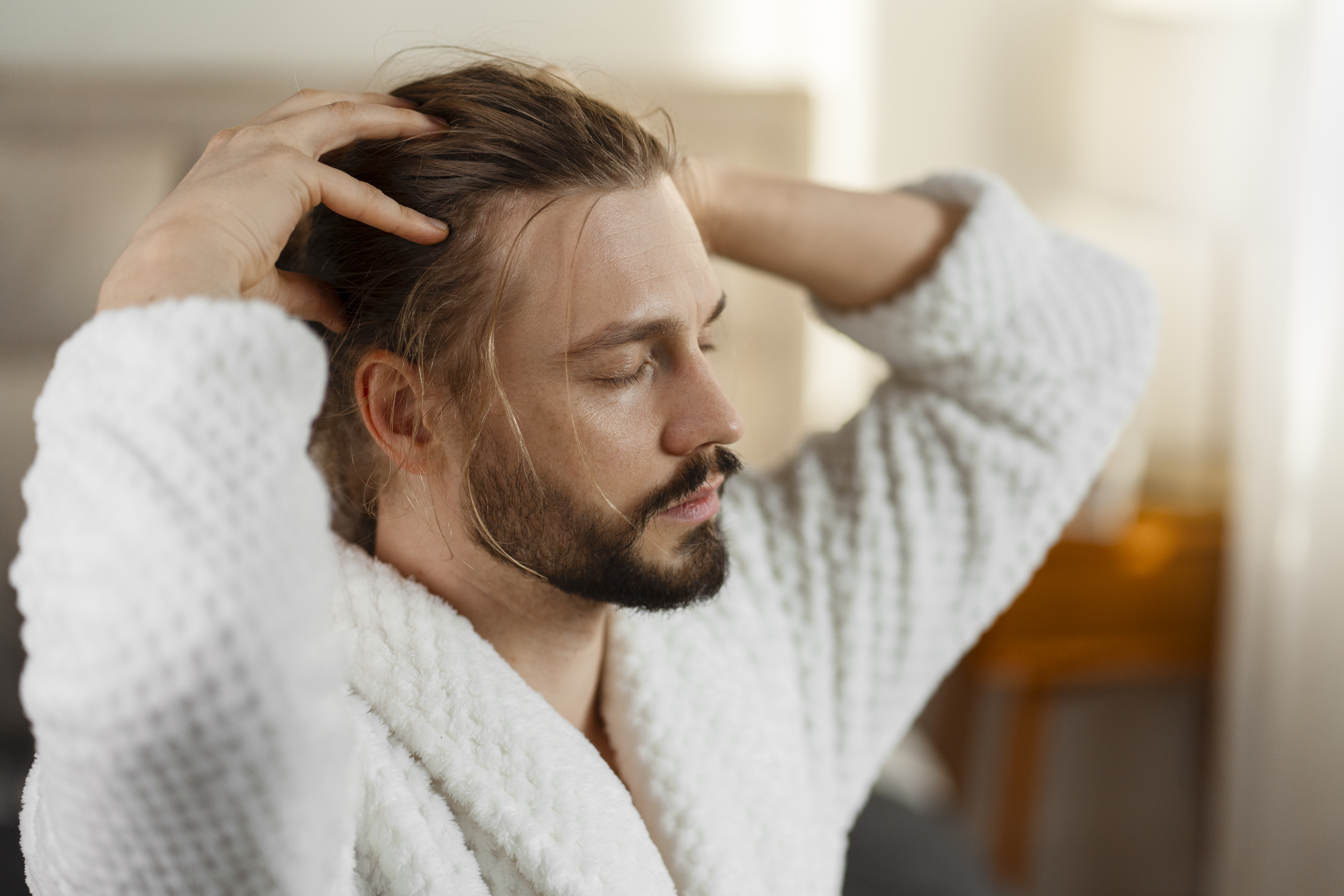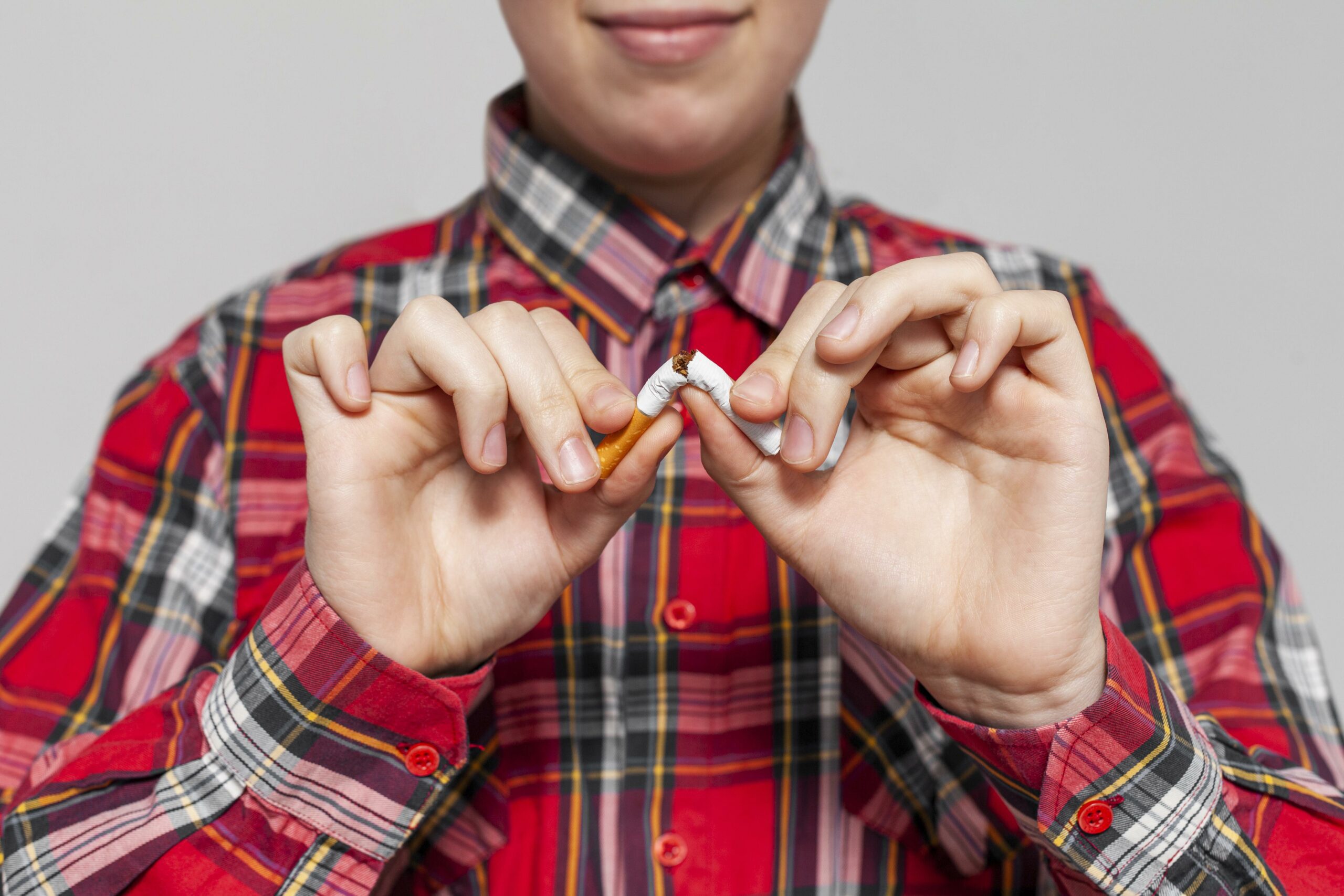Having thick hair plays a significant role in a man’s confidence and overall appearance.
Unfortunately, many face the challenge of asking how to get thicker hair for a male. Understanding and tackling this issue can make a noticeable difference. This article explores various straightforward and effective strategies to help men achieve thicker hair.
From choosing the right products to adopting healthier lifestyle habits, these tips aim to provide practical solutions.
Remember, it’s about experimenting with different methods to find what works best for you. To learn even more about treatments for hair loss, visit our hair loss treatment page.
Thickening Shampoo

If you’re wondering how to make male hair thicker, then thickening shampoos can be a great first step in improving hair density.
These shampoos work by coating each hair strand with a thickening agent, making your hair appear fuller.
Key ingredients to look for include biotin, keratin, and caffeine, which are known to strengthen and volumise hair.
To get the best results, use thickening shampoos regularly and follow the instructions on the label. You will most likely need to massage the shampoo into your scalp for a few minutes before rinsing to allow for maximum absorption.
Recommended thickening shampoos include brands like Nioxin, OGX Thick & Full Biotin & Collagen Shampoo, and Alpecin Caffeine Shampoo.
These products have received positive reviews for their effectiveness in promoting thicker hair.
Male Hair Loss Medication

Medications can be an effective way to combat hair loss and promote thicker hair.
Common options include finasteride (Propecia) and minoxidil (Regaine).
Finasteride works by reducing the levels of dihydrotestosterone (DHT), a hormone that shrinks hair follicles.
Minoxidil, on the other hand, stimulates hair growth by widening blood vessels and increasing blood flow to the scalp.
While these medications can offer significant benefits, they also come with potential side effects such as scalp irritation and sexual dysfunction. It’s expected that a consultation with a healthcare professional should be used to determine the best course of action.
Avoid Heat Treatment

Excessive heat can damage hair, leading to thinning and breakage.
Regular use of hairdryers, straighteners, and curling irons can weaken hair strands and cause them to fall out. Instead, consider alternative styling methods that don’t involve heat. Air-drying your hair or using heat-free styling tools like rollers can help maintain hair health.
When heat styling is unavoidable, protect your hair by using a heat protectant spray. These products create a barrier that reduces heat damage. Additionally, keep the heat setting on your styling tools as low as possible to minimise harm.
Experts and many individuals who have avoided heat treatments often report healthier, thicker hair as a result.
Reduce Stress

Stress is a significant factor that can contribute to hair thinning or loss.
High stress levels can disrupt the hair growth cycle, leading to hair shedding and slower growth. Incorporating practical stress reduction techniques into your daily routine can benefit your hair health. Activities such as regular exercise, meditation, and proper sleep are effective ways to manage stress.
A balanced lifestyle not only improves your overall well-being but also positively impacts your hair. People who have adopted stress management practices often notice a reduction in hair thinning and an improvement in hair thickness.
Stop Smoking

Smoking has numerous negative effects on health, including impairing hair growth and thickness.
The toxins in cigarettes can damage hair follicles, leading to weaker and thinner hair. Quitting smoking can significantly improve hair health and promote growth. The benefits of quitting smoking extend beyond hair health, improving overall well-being.
There are various strategies and resources available to help quit smoking, such as nicotine replacement therapy, counselling, and support groups. Many individuals who quit smoking notice their hair becoming healthier and thicker over time.
What Causes Hair Thinning in Men?

Hair thinning in men can be caused by various factors, including genetics, hormonal changes, and lifestyle choices.
Male pattern baldness, a hereditary condition, is the most common cause.
Other factors such as poor diet, stress, smoking, and the use of harsh hair products can also contribute to thinning hair. Certain medical conditions, like thyroid disorders and scalp infections, can lead to hair thinning.
Identifying the cause of hair thinning is needed for choosing the right treatment. Seeking professional advice for persistent hair thinning can help choose a suitable treatment plan.
Improving hair thickness requires a combination of the right products, healthy lifestyle choices, and stress management.
By implementing these strategies, men can achieve healthier, thicker hair. Remember, patience and consistency are key.
For more information and professional guidance, if you are considering any hair loss medication, then don’t delay getting a video consultation from us for your next steps.


